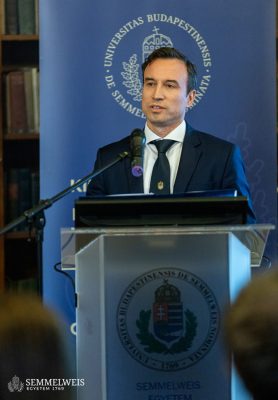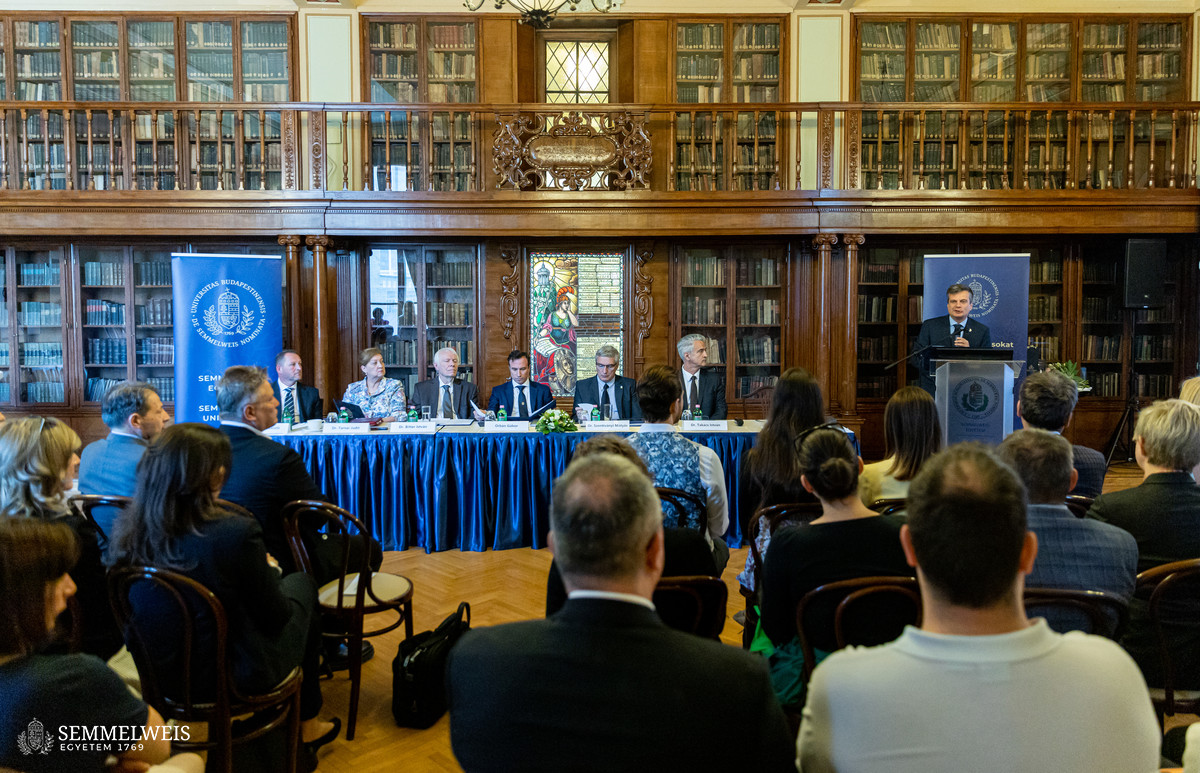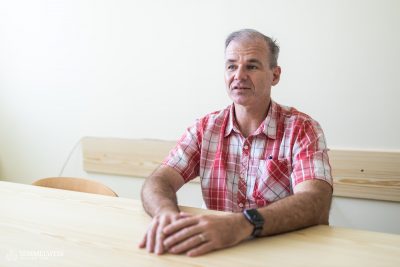Semmelweis University launches hundreds of clinical trials every year, and is involved in almost half of the trials in Hungary. At the opening ceremony of the International Day of Clinical Trials, Rector Dr. Béla Merkely paid special tribute to the university staff – heads of trials, doctors, nurses, coordinators, economic and legal experts – and to the industrial partners who make these developments possible.

In his video message, the Rector emphasized that Semmelweis University’s strategic goals include increasing clinical research activities. He also recalled that the volume and quality of studies play a significant role in research performance, and thus have a major impact on the position in higher education rankings. He recalled that Semmelweis University moved up 149 places in the latest Times Higher Education ranking, becoming one of the world’s top 300 higher education institutions, and was ranked 55th in the US News Best Global Universities list in the cardiovascular field.
On the international day, Semmelweis University and the Hungarian Society of Experimental and Clinical Pharmacology (HUPHAR) jointly organized an event on the role of university clinical research centres in the health-industry-biotechnology innovation ecosystem.

Dr. Péter Ferdinandy, Vice-Rector for Science and Innovation, President of HUPHAR and host of the event, presented the pharmaceutical ecosystem from the university perspective. He reminded that the vision of the university is to be in the top 100 of the world rankings, among the top 5 medical universities in Europe. The university also wants to be a leading centre of the healthcare innovation ecosystem in the Central European region, he added. Research, development and innovation (KFI) parameters account for around 60 per cent of the university ranking indicators. This is why a strong focus on this area is necessary, which can be further strengthened by developing the missing core facilitators, improving the innovation culture, technology transfer and the organizational structure supporting KFI. With regard to commercial clinical research, the University aims to further strengthen support activities at the clinic level in order to increase patient recruitment and the quality of trials.

Gábor Orbán, CEO of Gedeon Richter Nyrt. and President of the National Foundation for Health and Medical Education, which maintains the university, emphasized that Semmelweis University is in a very good position in the field of clinical trials in Hungary. However, it is important to examine the current situation carefully and to set tangible goals as to how the institution can develop further – what inhibiting factors need to be dismantled and what elements need to be incorporated to move forward. He pointed out that the change of model has put more emphasis on improving the competitiveness of universities, which implies a different relationship with the health ecosystem, and that integration into the industrial KFI chain, including in the field of clinical trials, is one of the biggest breakthroughs.
The new European Clinical Trials Regulation, which was designed to standardize and therefore to speed up the authorization, conduct and communication of clinical trials in the European Union, will apply from 31 January 2022. Dr. Mátyás Szentiványi, Director General of the National Institute of Pharmacy and Food Safety (OGYÉI), spoke about the challenges of the new regulation from the point of view of the authorising authority. He said that the new centralized system will be based on a common Clinical Trial Information System (CTIS), an important element of which is the EU website and database.

The challenges of the new regulation were highlighted from the perspective of the Ethics Committee by Dr. István Bitter, Chairman of the Clinical Pharmacology Ethics Committee (KFEB) of the Health Sciences Council (ETT), who highlighted the difficulties of deadlines in the procedural processes. He also said that progress needs to be made in the area of Investigator Initiated Trials (IIT) in order to increase the number of external mandates, and suggested that this area should be addressed as a priority.
Dr. Judit Tarnai, Executive Director of the National Agency for Health Research (NEKÜ) Nonprofit Ltd., detailed the role of NEKÜ in improving the conduct and professional environment of clinical trials in Hungary. Among the priorities, she mentioned a uniform quality assurance system, the establishment of clinical research centres, the development of Phase I sites and training. It is also a sector of national economic importance, with Hungary ranking first in terms of population at regional level,” he said.
Dr. István Takács, Vice-Chairman of the External Research Works Review Committee of Semmelweis University, Director of the Department of Internal Medicine and Oncology, said that one of the main challenges for the university’s clinical research sites is to comply with new types of studies and monitoring methods, and another is to establish a network of sites.
Dr. László Veres, Managing Director of IQVIA RDS Hungary, explained what makes or keeps a site successful. He stressed the importance of increasing cooperation between the different actors, and he sees the secret of success in openness and flexibility in preparing to embrace new processes.
New award created by the University on the International Day of Clinical Trials
Outstanding achievement in the organization and conduct of clinical trials is recognized by Semmelweis University’s new Award for Commercial Clinical Trials. The first call for applications is expected in the first quarter of 2023 and the award ceremony will always take place on the International Day of Clinical Trials, which the University will commemorate every year.
Edited by Pálma Dobozi, translation by Rita Kónya
Photos: Attila Kovács – Semmelweis University


